Related Research Articles

Macon, officially Macon–Bibb County, is a consolidated city-county in Georgia, United States. Situated near the fall line of the Ocmulgee River, it is 85 miles (137 km) southeast of Atlanta and near the state's geographic center—hence its nickname "The Heart of Georgia."
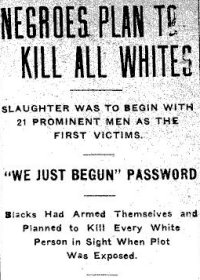
The Elaine massacre occurred on September 30–October 2, 1919, at Hoop Spur in the vicinity of Elaine in rural Phillips County, Arkansas where African Americans were organizing against peonage and abuses in tenant farming. As many as several hundred African Americans and five white men were killed. Estimates of deaths made in the immediate aftermath of the Elaine Massacre by eyewitnesses range from 50 to "more than a hundred". Walter Francis White, an NAACP attorney who visited Elaine shortly after the incident, stated "... twenty-five Negroes killed, although some place the Negro fatalities as high as one hundred". More recent estimates in the 21st century of the number of black people killed during this violence are higher than estimates provided by the eyewitnesses, and have ranged into the hundreds. The white mobs were aided by federal troops and local terrorist organizations. Gov. Brough led a contingent of 583 US soldiers from Camp Pike, with a 12-gun machine gun battalion.

Alexander Hamilton Stephens was an American politician who served as the first and only vice president of the Confederate States from 1861 to 1865, and later as the 50th governor of Georgia from 1882 until his death in 1883. A member of the Democratic Party, he represented the state of Georgia in the United States House of Representatives before and after the Civil War.
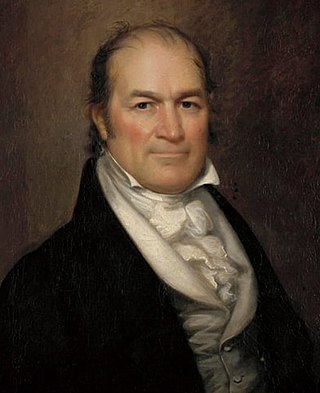
William Harris Crawford was an American politician and judge during the early 19th century. He served as US Secretary of War and US Secretary of the Treasury before he ran for US president in the 1824 election.
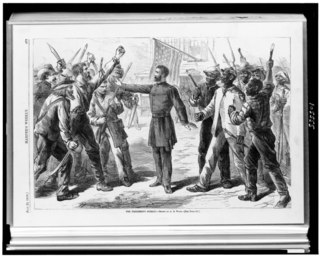
The Bureau of Refugees, Freedmen, and Abandoned Lands, usually referred to as simply the Freedmen's Bureau, was a U.S. government agency of early post American Civil War Reconstruction, assisting freedmen in the South. It was established on March 3, 1865, and operated briefly as a federal agency after the War, from 1865 to 1872, to direct "provisions, clothing, and fuel...for the immediate and temporary shelter and supply of destitute and suffering refugees and freedmen and their wives and children".

Thomas Edward Watson was an American Populist and white supremacist politician, attorney, newspaper editor, and writer from Georgia. In the 1890s Watson championed poor farmers as a leader of the Populist Party, articulating an agrarian political viewpoint while attacking business, bankers, railroads, Democratic President Grover Cleveland, and the Democratic Party. He was the nominee for vice president with Democrat William Jennings Bryan in 1896 on the Populist ticket.

George Franklin Drew was the 12th Governor of the U.S. state of Florida.

Eugene Talmadge was an attorney and American politician who served three terms as the 67th governor of Georgia, from 1933 to 1937, and then again from 1941 to 1943. Elected to a fourth term in November 1946, he died before his inauguration, scheduled for January 1947. Only Talmadge and Joe Brown, in the mid-19th century, have been elected four times as governor of Georgia.
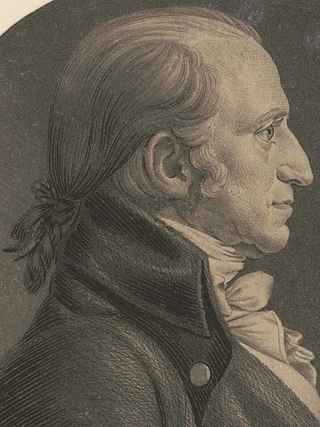
James Jackson was an early British-born Georgia politician of the Democratic-Republican Party. He was a member of the U.S. House of Representatives from 1789 until 1791. He was also a U.S. Senator from Georgia from 1793 to 1795, and from 1801 until his death in 1806. In 1797 he was elected 23rd Governor of Georgia, serving from 1798 to 1801 before returning to the senate.

William Rabun was an American politician. He was a member of the Georgia House of Representatives and Georgia Senate in addition to serving as the 29th Governor of Georgia from 1817 to 1819.
White primaries were primary elections held in the Southern United States in which only white voters were permitted to participate. Statewide white primaries were established by the state Democratic Party units or by state legislatures in South Carolina (1896), Florida (1902), Mississippi and Alabama, Texas (1905), Louisiana and Arkansas (1906), and Georgia (1900). Since winning the Democratic primary in the South almost always meant winning the general election, barring black and other minority voters meant they were in essence disenfranchised. Southern states also passed laws and constitutions with provisions to raise barriers to voter registration, completing disenfranchisement from 1890 to 1908 in all states of the former Confederacy.

James Hunter Young was an American soldier and politician from North Carolina. He was a colonel in the Third North Carolina Regiment during the Spanish–American War and served in the North Carolina House of Representatives. He was a Republican.
The civil rights movement (1865–1896) aimed to eliminate racial discrimination against African Americans, improve their educational and employment opportunities, and establish their electoral power, just after the abolition of slavery in the United States. The period from 1865 to 1895 saw a tremendous change in the fortunes of the Black community following the elimination of slavery in the South.
Edwin Belcher was an officer in the Union Army during the American Civil War, a Freedmen Bureau official in Monroe County, Georgia after the war, and then a state senator in the Georgia Legislature representing Wilkes County, Georgia during the Reconstruction Era.
The "Original 33" were the first 33 African-American members of the Georgia General Assembly. They were elected to office in 1868, during the Reconstruction era. They were among the first African-American state legislators in the United States. Twenty-four of the members were ministers. Upon taking office, white Democrats, then a minority in the Assembly, conspired with enough white Republicans to expel the African-American legislators from the Assembly in September 1868. The next year, the Supreme Court of Georgia ruled that African Americans had the right to hold office in Georgia. The expelled legislators were reinstated and took office in January 1870.
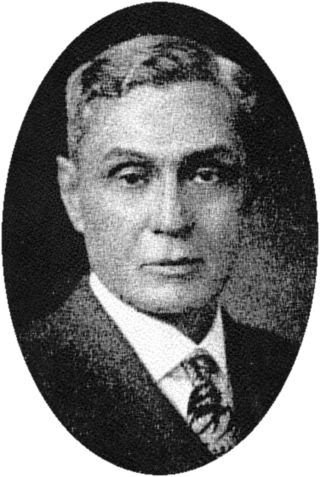
David Foote Rivers was a theologian and politician in the United States. An African American and a Republican, he served as a member of the Tennessee House of Representatives for Fayette County from 1883 to 1884. He represented Fayette County.

Styles Linton Hutchins was an attorney, politician, and activist in South Carolina, Georgia, and Tennessee between 1877 and 1906. Hutchins was among the last African Americans to graduate from the University of South Carolina School of Law in the brief window during Reconstruction when the school was open to Black students and the first Black attorney admitted to practice in Georgia. He practiced law and participated in local politics in Georgia and Tennessee, served a single term (1887-1888) in the Tennessee General Assembly as one of its last Black members before an era of entrenched white supremacy that lasted until 1965, and advocated for the interests of African Americans. He called for reparations and attempted to identify or create a separate homeland for Blacks. He was a member of the defense team in the 1906 appeal on civil rights grounds by Ed Johnson of a conviction of rape, a case which reached the Supreme Court before it was halted by Johnson's murder by lynching in Chattanooga, Tennessee.
W. H. Rogers was an American politician. He was a state legislator in Georgia and was the only African-American to serve in the 99th Georgia State Assembly. He represented McIntosh County, Georgia from 1902 until 1907.
James H. Alston was a state legislator in Alabama. He served in the legislature in 1868 and from 1869 to 1879.
Eustace Edward Green Sr. (1845-1931) was an American state legislator and educator in North Carolina and a medical doctor in Georgia.
References
- ↑ Wight, Willard E. (1960). "Negroes in the Georgia Legislature: The Case of F. H. Fyall of Macon County". The Georgia Historical Quarterly. 44 (1): 85–97. JSTOR 40578005 – via JSTOR.
- ↑ Representatives, Georgia General Assembly House of (August 23, 1868). "Journal ..." – via Google Books.